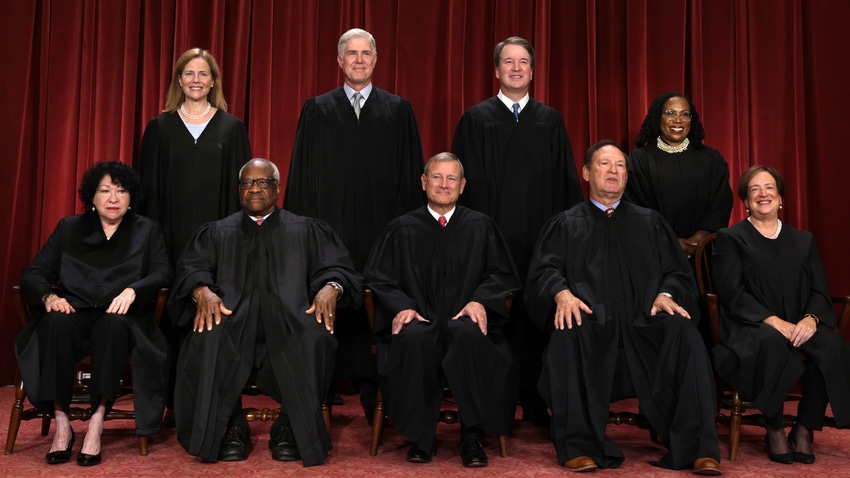US Chief Justice: AI is Here to Stay, But So Are Judges
The legal profession does not like change: It used typewriters for a century. But AI is changing the judicial system, writes Chief Justice John Roberts.

At a Glance
- Supreme Court Chief Justice John Roberts picks a theme for his annual letter. This year, he chose AI.
- He said AI has many benefits but also risks - inputting info that might compromise later attempts to invoke legal privileges.
Every year, the top judge of the U.S. picks a topic for his annual letter that he feels is a “major issue relevant to the whole federal court system.”
For his 2023 Judiciary Report, Chief Justice John Roberts of the U.S. Supreme Court chose artificial intelligence.
“As 2023 draws to a close with breathless predictions about the future of Artificial Intelligence, some may wonder whether judges are about to become obsolete,” he wrote. “I am sure we are not — but equally confident that technological changes will continue to transform our work.”
Roberts said that the legal profession is “notoriously” adverse to change, where even now the clerk of the Supreme Court still sets out white goose quill pens at counsel table before each oral argument.
The typewriter came about 150 years ago and lasted a century. In 1969, the court got a photocopy machine and in 1976, a rented Wang personal computer. By the early 1990s, Roberts said that most lawyers, law clerks, court administrators and judges had computers on their desks. Still, “paper remained the rule of the day” for cases, he wrote.
Afterwards, technological changes came “fast,” Roberts said. The paper regime gave way to electronic records and then, electronic filing of cases. COVID forced courts to become even more digital, as they adopted remote instead of in-person hearings.
“And now we face the latest technological frontier: artificial intelligence,” he wrote.
While AI holds many benefits for the legal profession – greater efficiency and productivity while raising access to justice for poor people by helping them find templates and court forms as well as show them how to fill these out and where to bring them to present to the judge.
“These tools have the welcome potential to smooth out any mismatch between available resources and urgent needs in our court system,” the chief justice wrote.
AI could help legal scholars, with Roberts writing, “legal research may soon be unimaginable without it.”
However, he urged “caution and humility” around AI, expressing concerns around hallucinations, referencing cases of lawyers who used ChatGPT in legal filings only to find that the chatbot made up non-existent cases.
New legal risk from AI
He also saw a new risk: “Some legal scholars have raised concerns about whether entering confidential information into an AI tool might compromise later attempts to invoke legal privileges,” Roberts said.
Studies also show that society sees AI as less fair than humans, he said. Using AI in the legal field is trickier than say, determining whether a tennis ball at the U.S. Open is out or not. “Legal determinations often involve gray areas,” Roberts said.
“Machines cannot fully replace key actors in court. Judges, for example, measure the sincerity of a defendant’s allocution at sentencing. Nuance matters: Much can turn on a shaking hand, a quivering voice, a change of inflection, a bead of sweat, a moment’s hesitation, a fleeting break in eye contact. And most people still trust humans more than machines to perceive and draw the right inferences from these clues,” Roberts wrote.
As such, “I predict that human judges will be around for a while. But with equal confidence I predict that judicial work — particularly at the trial level — will be significantly affected by AI,” he said. “Those changes will involve not only how judges go about doing their job, but also how they understand the role that AI plays in the cases that come before them.”
AI has already entered the legal world. In December, Allen & Overy launched an AI tool that can write standard legal contracts. The same firm is among those making use of Harvey, a conversational AI chatbot designed to assist lawyers with tasks like document checking and due diligence.
Roberts said courts today could not perform their work without technologists: “More parochially, judges, including me, have been known to call on help desk staff for urgent and essential assistance.”
About the Author(s)
You May Also Like




.jpg?width=700&auto=webp&quality=80&disable=upscale)
.jpg?width=700&auto=webp&quality=80&disable=upscale)
.jpg?width=700&auto=webp&quality=80&disable=upscale)
.jpg?width=300&auto=webp&quality=80&disable=upscale)
.jpg?width=300&auto=webp&quality=80&disable=upscale)
.jpg?width=300&auto=webp&quality=80&disable=upscale)

.jpg?width=300&auto=webp&quality=80&disable=upscale)